Royal model for successful farming
The ultimate objective of the six Royal Development Study Centres, established byHis Majesty King Bhumipol to tackle agricultural problems on a regional basis, is for Thai farmers to become self-reliant and self-confident.
By Maxmilian Wechsler
By Maxmilian Wechsler
For years, Thim Kanasem had to watch his paddy and vegetable fields being ravaged by insects and disease. The poor quality of the soil added to the problem, making annual yields very low. His life changed for the better five years ago, when he sought help from the Khao Hin Sorn Royal Development Study Centre in Chachoengsao province.
The officials there advised the 63-year-old farmer to use organic substances to improve the soil quality at his three-rai farm in Nong Hiang village – and it worked. His income is higher than ever before. Not only that, he has become something of a specialist himself in agricultural science.
Thim is now a volunteer soil doctor and his land is used as a Soil Development Learning Centre to help fellow farmers.
“I developed my own organic compost and pesticide, and I also teach other farmers. I am very happy about what I am doing because it helps many farmers to improve their livelihood. And not only Thai farmers – soil experts from Cambodia have also visited me to learn whether the methods applied here could be used in their country,” said Thim.
“I am grateful to His Majesty the King and the Royal Development Study Centre (RDSC) for what they have done for me and my family. I want to stay in this work forever.”
Khao Hin Sorn is the first of RDSCs which were set up in all major regions of the country by His Majesty the King. The others are Khung Krabaen Bay and Huai Sai (Central region), Pikun Thong (South), Puparn (Northeast) and Huai Hong Khrai (North).
Each one serves as a model for success to transfer its findings to the farmers in the respective areas, and also as a sort of “natural living museum” where people can go and see demonstrations of development methods and techniques in various fields in order to acquire knowledge, adopt new development methods and receive occupational training.
The ultimate objective, according to Sompol Panmanee, Secretary-General of the Royal Development Projects Board (RDPB), is for the farmers to become self-reliant and self-confident. He explained that each centre serves as a “one-stop” service.
The officials there advised the 63-year-old farmer to use organic substances to improve the soil quality at his three-rai farm in Nong Hiang village – and it worked. His income is higher than ever before. Not only that, he has become something of a specialist himself in agricultural science.
Thim is now a volunteer soil doctor and his land is used as a Soil Development Learning Centre to help fellow farmers.
“I developed my own organic compost and pesticide, and I also teach other farmers. I am very happy about what I am doing because it helps many farmers to improve their livelihood. And not only Thai farmers – soil experts from Cambodia have also visited me to learn whether the methods applied here could be used in their country,” said Thim.
“I am grateful to His Majesty the King and the Royal Development Study Centre (RDSC) for what they have done for me and my family. I want to stay in this work forever.”
Khao Hin Sorn is the first of RDSCs which were set up in all major regions of the country by His Majesty the King. The others are Khung Krabaen Bay and Huai Sai (Central region), Pikun Thong (South), Puparn (Northeast) and Huai Hong Khrai (North).
Each one serves as a model for success to transfer its findings to the farmers in the respective areas, and also as a sort of “natural living museum” where people can go and see demonstrations of development methods and techniques in various fields in order to acquire knowledge, adopt new development methods and receive occupational training.
The ultimate objective, according to Sompol Panmanee, Secretary-General of the Royal Development Projects Board (RDPB), is for the farmers to become self-reliant and self-confident. He explained that each centre serves as a “one-stop” service.
The idea for the RDSC originated more than five decades ago, a result of His Majesty's visits to rural areas throughout the country. Realising that each region has its own unique circumstances and problems, the King wisely chose to tackle those problems on a regional basis by establishing the various centres for study and experimentation.
Each centre coordinates with government agencies on project planning and management. As Sompol said, the centres are “models of innovative administration and management.”
Opened on August 8, 1979, Khao Hin Sorn is located about 100 kilometres southeast of Bangkok in Phanom Sarakham district of Chachoengsao province.
The centre’s director, Ms Suda Swuttanakoon, explained that before it was set up the forest in the region was mostly destroyed and the soil was badly deteriorated.
“His Majesty saw the need to rehabilitate the soil, as it had become sandy due to continuous cultivation of field crops. Therefore the main activity of this centre is to restore soil fertility,” said Suda.
The centre covers almost 1,900 rai and employs 269 workers.
Thongsak Suphata, who lives in nearby Ban Rai Phan Din Thong village, near the centre, told how he has benefited from the royal project.
“Since joining the centre in 1992, I have attended various training courses initiated by the Land Development Department and other organisations. I was introduced to methods to better manage water resources and cultivate fruit plants, and also to produce organic fertiliser, etc. This has enabled me to earn more income from my farm and also to reduce costs,” said the 57-year-old farmer.
“I was approached by the centre and they advised me on various aspects of soil development and other subjects. Since then I have become an expert myself. The centre gave me suggestions on how to put the theories of the King into practice. I am very grateful to him,” added Thongsak.
Each centre coordinates with government agencies on project planning and management. As Sompol said, the centres are “models of innovative administration and management.”
Opened on August 8, 1979, Khao Hin Sorn is located about 100 kilometres southeast of Bangkok in Phanom Sarakham district of Chachoengsao province.
The centre’s director, Ms Suda Swuttanakoon, explained that before it was set up the forest in the region was mostly destroyed and the soil was badly deteriorated.
“His Majesty saw the need to rehabilitate the soil, as it had become sandy due to continuous cultivation of field crops. Therefore the main activity of this centre is to restore soil fertility,” said Suda.
The centre covers almost 1,900 rai and employs 269 workers.
Thongsak Suphata, who lives in nearby Ban Rai Phan Din Thong village, near the centre, told how he has benefited from the royal project.
“Since joining the centre in 1992, I have attended various training courses initiated by the Land Development Department and other organisations. I was introduced to methods to better manage water resources and cultivate fruit plants, and also to produce organic fertiliser, etc. This has enabled me to earn more income from my farm and also to reduce costs,” said the 57-year-old farmer.
“I was approached by the centre and they advised me on various aspects of soil development and other subjects. Since then I have become an expert myself. The centre gave me suggestions on how to put the theories of the King into practice. I am very grateful to him,” added Thongsak.
Stunning transformation
About 800 kilometres north of Khao Hin Sorn and 50 kilometres east of Chiang Mai, situated in the area of Pa Khun Mae Kuang National Forest Reserve in Doi Saket district, farmers also speak of the success which the establishment of the Huai Hong Khrai centre has brought them.
Director Pradab Kladkempetch noted that Huai Hong Khrai, established on December 11, 1982, is the largest of the six RDCs, covering 8,500 rai and employing 450 workers.
“When the centre was established, the area was deteriorated due to massive deforestation, forest fires and erosion,” Pradab said. He showed many photos of the area in 1982 which presented a stark contrast to the verdant landscape of today, as revealed by a drive through the thick and green forest. There are no problems with water either. It is a very beautiful and tranquil place. The centre is also well equipped with experts and facilities available to those wishing to learn agricultural principles or just coming for some quick advice.
Wira Chinachai, 47, a model farmer who resides at Talad Keelek village, owns about 1.5 rai of land divided into a residential area and a plot for mushroom culture.
“I joined the programme for mushroom culture organised by Huai Hong Khrai centre in 1994. I cultivate various kinds of mushrooms – shitake, lacquered, oyster and others. I have also joined other programmes, such as those for fish farming and bringing to market wild pigs and frogs to improve my income.
“I sell mushrooms at the local market. The demand is very big now and there are actually shortages at this time – a lot of mushrooms grown in Thailand are exported to China. I also teach local farmers and farmers from other provinces about mushroom culture in classes held on my property,” said Wira.
Experts at the centre suggested that she grow mushrooms in the first place and advised her on growing techniques. Before she grew orchids, rice and fruits, but had a hard time making ends meet. Now she earns a comfortable living, mostly from growing mushrooms.
“I won’t expand the business. What I earn is enough for me and my family, who work with me. We are self-sufficient. I would like to encourage other farmers to grow mushrooms,” she continued.
“The centre changed my life completely. I have more cash and less debt. I am most grateful to His Majesty.”
Another model farmer, 44-year-old Manoon Thednam, lives close to the centre on his eight-rai farm and has a degree in Agricultural Business.
“Since joining the project seven years ago my life has improved dramatically. Before I was growing only rice, corn or garlic every year, trapped in a mono-cropping mindset. Now I have started integrated farming. I cultivate a number of crops each year and also manage different stock animals. The integrated system of farming is better than mono-cropping, which is risky, because if one crop fails then you lose everything. With integrated farming you have many options. It has never failed me.”
Director Pradab Kladkempetch noted that Huai Hong Khrai, established on December 11, 1982, is the largest of the six RDCs, covering 8,500 rai and employing 450 workers.
“When the centre was established, the area was deteriorated due to massive deforestation, forest fires and erosion,” Pradab said. He showed many photos of the area in 1982 which presented a stark contrast to the verdant landscape of today, as revealed by a drive through the thick and green forest. There are no problems with water either. It is a very beautiful and tranquil place. The centre is also well equipped with experts and facilities available to those wishing to learn agricultural principles or just coming for some quick advice.
Wira Chinachai, 47, a model farmer who resides at Talad Keelek village, owns about 1.5 rai of land divided into a residential area and a plot for mushroom culture.
“I joined the programme for mushroom culture organised by Huai Hong Khrai centre in 1994. I cultivate various kinds of mushrooms – shitake, lacquered, oyster and others. I have also joined other programmes, such as those for fish farming and bringing to market wild pigs and frogs to improve my income.
“I sell mushrooms at the local market. The demand is very big now and there are actually shortages at this time – a lot of mushrooms grown in Thailand are exported to China. I also teach local farmers and farmers from other provinces about mushroom culture in classes held on my property,” said Wira.
Experts at the centre suggested that she grow mushrooms in the first place and advised her on growing techniques. Before she grew orchids, rice and fruits, but had a hard time making ends meet. Now she earns a comfortable living, mostly from growing mushrooms.
“I won’t expand the business. What I earn is enough for me and my family, who work with me. We are self-sufficient. I would like to encourage other farmers to grow mushrooms,” she continued.
“The centre changed my life completely. I have more cash and less debt. I am most grateful to His Majesty.”
Another model farmer, 44-year-old Manoon Thednam, lives close to the centre on his eight-rai farm and has a degree in Agricultural Business.
“Since joining the project seven years ago my life has improved dramatically. Before I was growing only rice, corn or garlic every year, trapped in a mono-cropping mindset. Now I have started integrated farming. I cultivate a number of crops each year and also manage different stock animals. The integrated system of farming is better than mono-cropping, which is risky, because if one crop fails then you lose everything. With integrated farming you have many options. It has never failed me.”
|
Like all the farmers who told of their experiences with the RDSC, Manoon wanted to express his deep gratitude to His Majesty.
“The RDSC has given me and my family a new start. I have resolved to devote my time and energy to promoting the self-sufficiency economy, according to His Majesty's teachings, to other people in Thailand. “I will receive anyone who wants to learn the integrated farming system,” he continued. He feels that, despite all the publicity it has received, a lot of people don't truly understand the philosophy behind the sufficiency economy. “The trick is to be self-reliant, depend on yourself, and make the most from your farm. Do it step by step and be patient. My farm is organic – I only use organic fertilisers. This cuts costs, as chemicals are expensive as well as dangerous. I am confident that my children will continue employing these concepts.” |
Behind the story:
I drove from Bangkok to the RDSC in Khao Hin Sorn, where I was warmly welcomed there by the staff. They showed me around and gave me details on their work. I spent a very pleasant day at the RDSC and learned many things. A few days later I flew to Chinag Mai, where I was collected straight off the plane by RDSC staff and taken to the Huai Hong Khrai RDSC outside Chiang Mai city. I spent another whole day exploring this RDSC and talking to the staff, then flew back to Bangkok next day. The visits to Khao Hin Sorn and Huai Hong Khrai RDSCs left me with a new perspective on the work of His Majesty Bhumibol Adulyadej. Even now, 17 years later, I can still vividly remember what transpired during these two visits. |
The RDSCs welcome visitors. Last year, about 145,000 visitors toured Khao Hin Sorn, and almost 170,000 people, including many foreigners, visited Huai Hong Khrai.
They are invariably impressed by the beautiful green landscapes and well-maintained facilities that are a source of learning for prosperous and grateful Thai farmers, some of whom have become teachers themselves.
This is the second of a four-part series on His Majesty the King’s efforts to help the poor and needy. The first article was published on June 17, 2007.
They are invariably impressed by the beautiful green landscapes and well-maintained facilities that are a source of learning for prosperous and grateful Thai farmers, some of whom have become teachers themselves.
This is the second of a four-part series on His Majesty the King’s efforts to help the poor and needy. The first article was published on June 17, 2007.

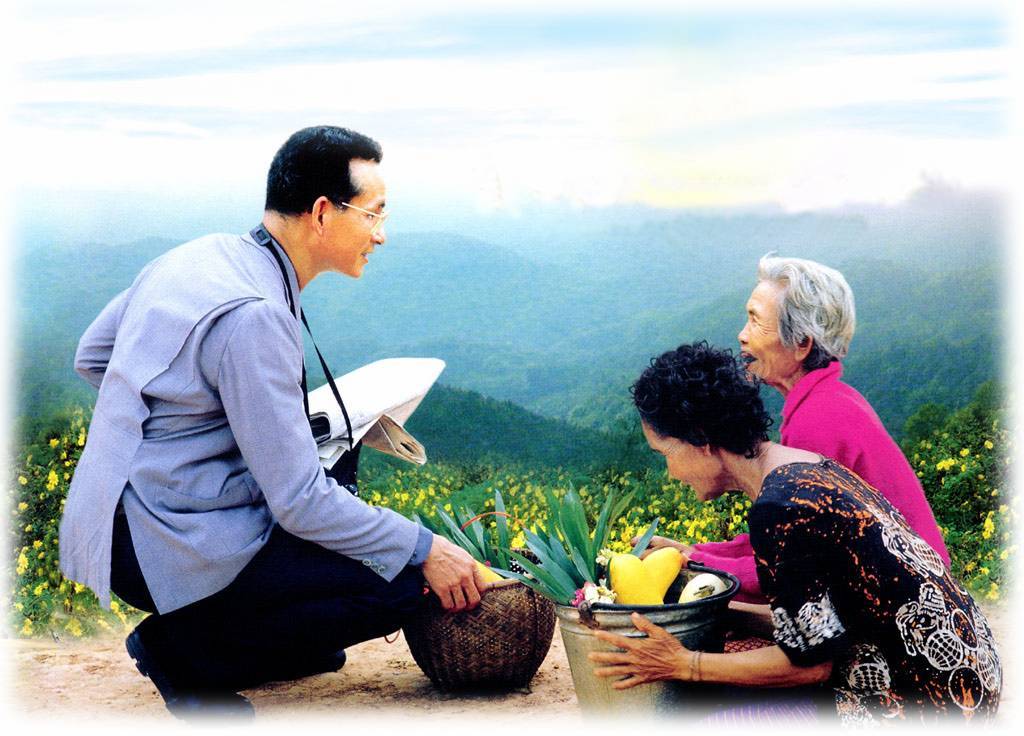
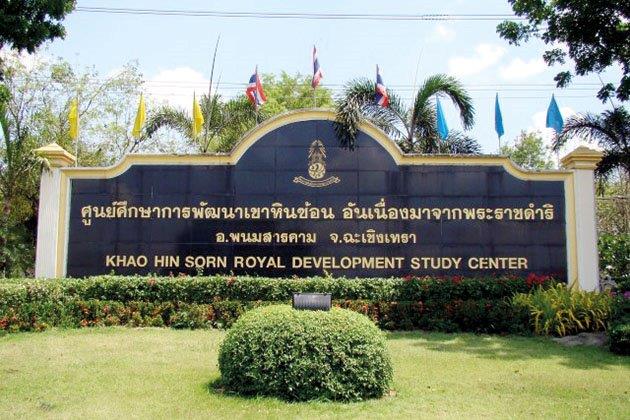
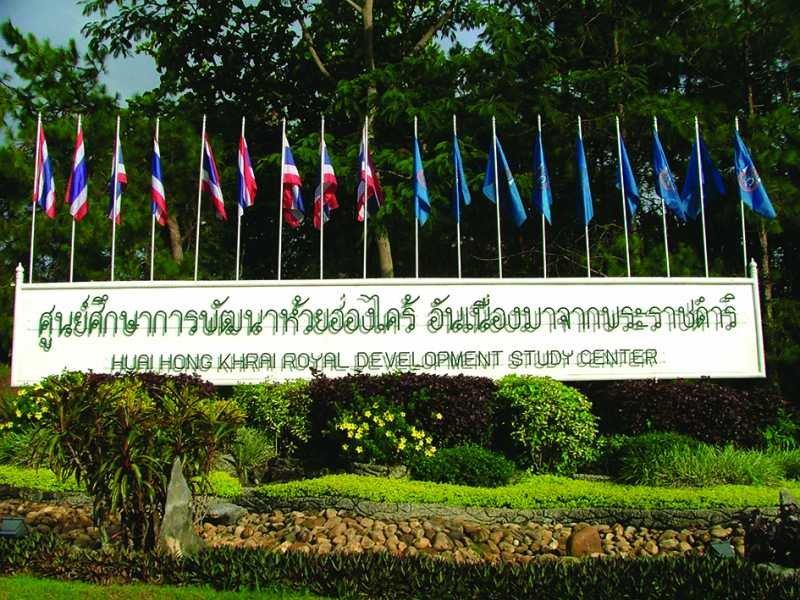
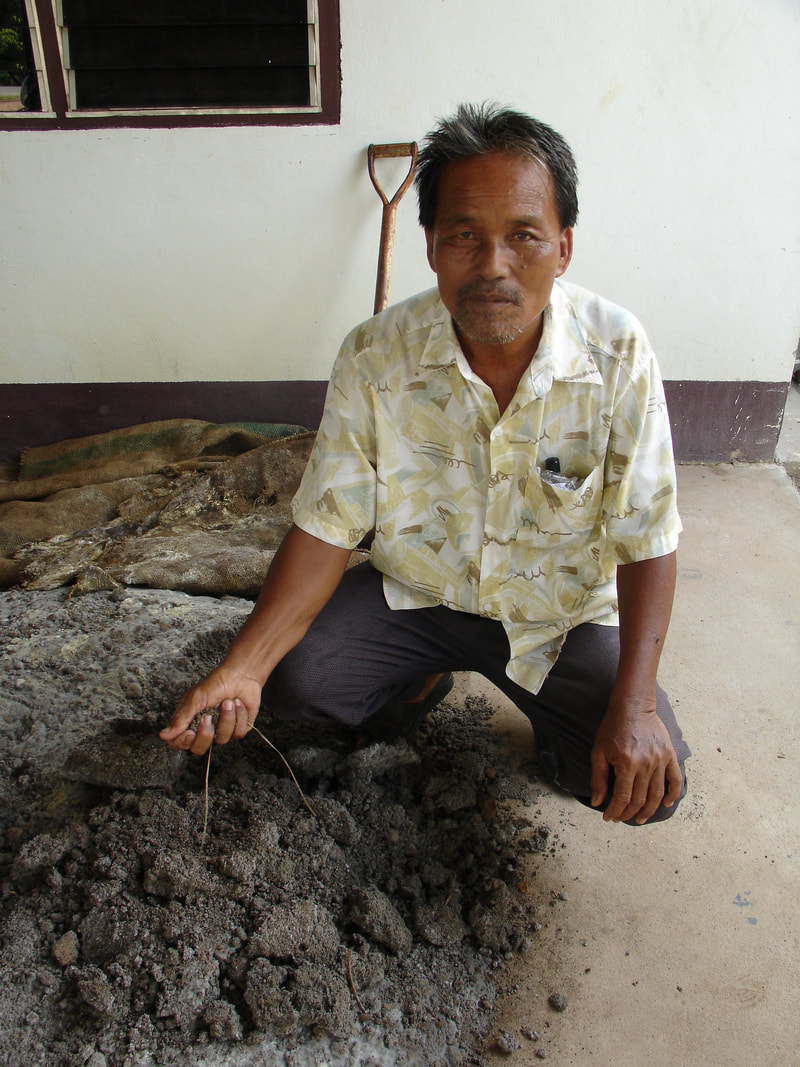
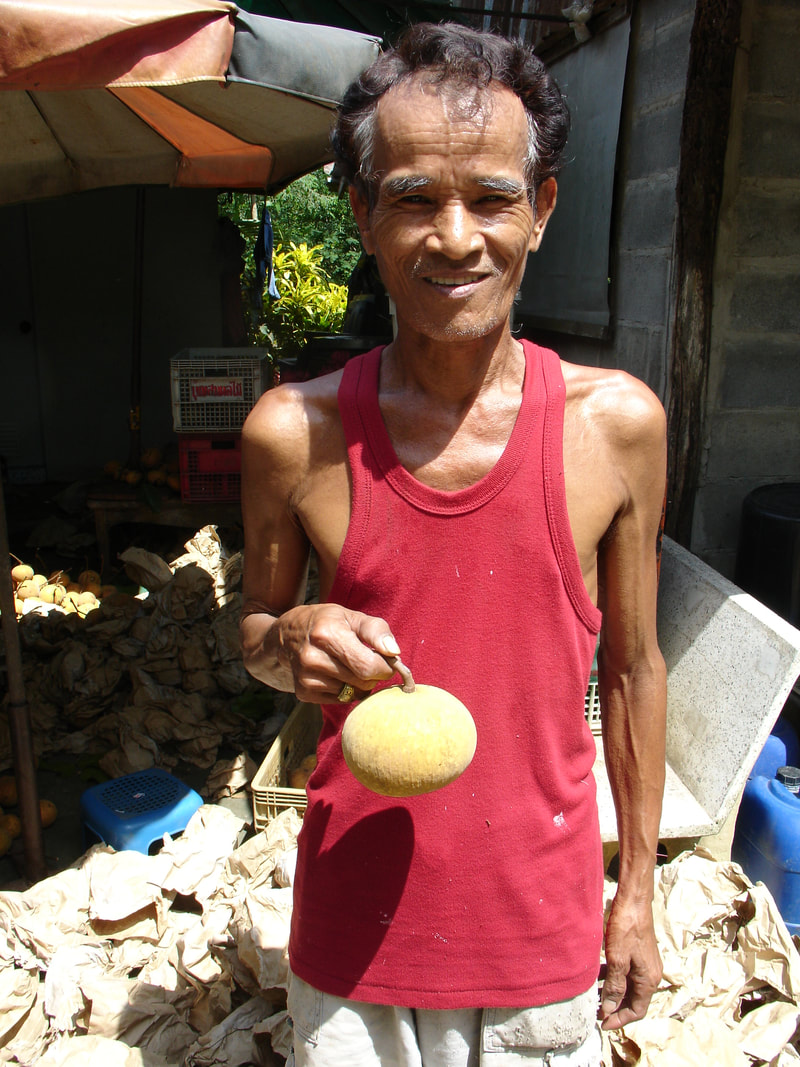
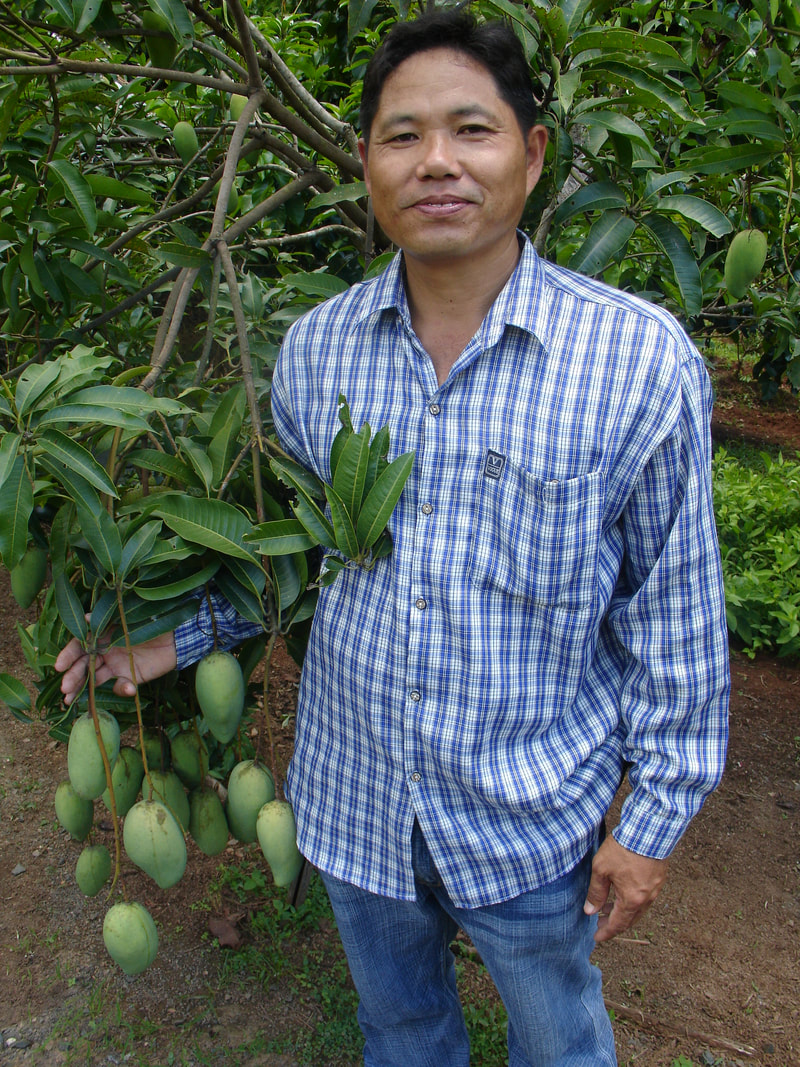
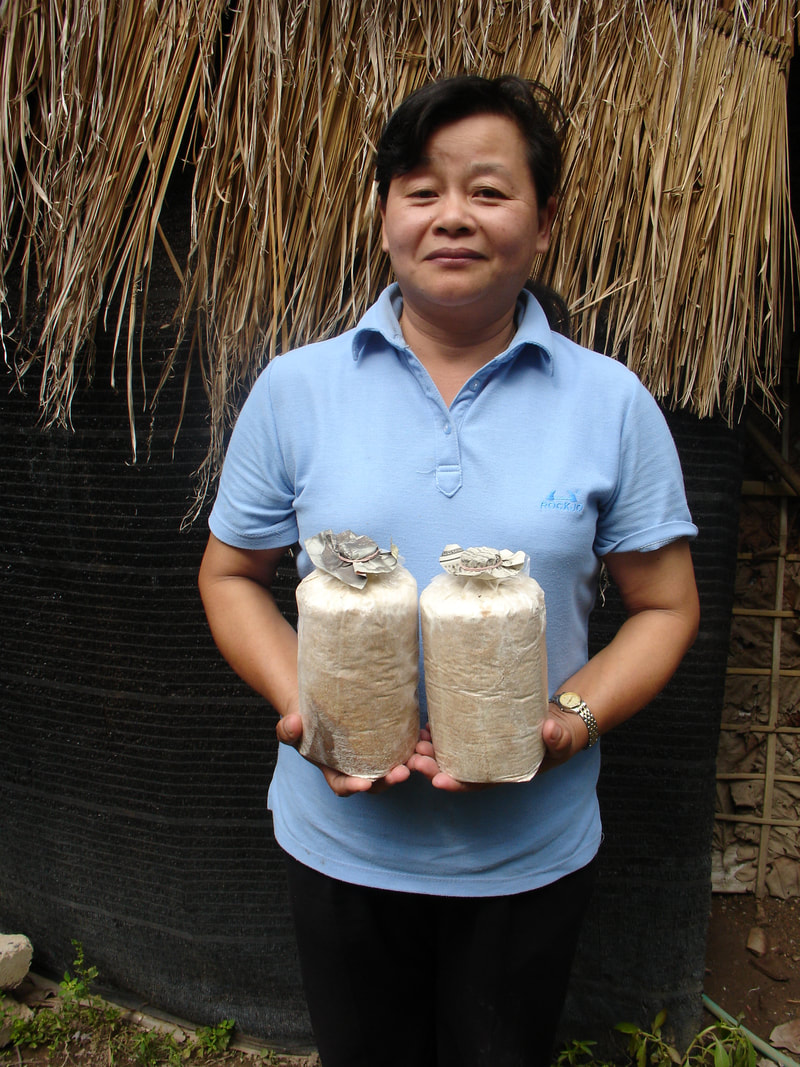
 RSS Feed
RSS Feed
















